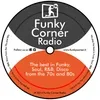Music Live Radio Stations
Radio Stations
- _Funky Corner Radio (Spain)

- _Funky Corner Radio (USA)

- @FM (Celaya) - 99.5 FM - XHAF-FM - Radiorama - Celaya, GT

- @FM (Culiacán) - 95.3 FM - XHIN-FM - Radiorama - Culiacán, SI

- @FM (Durango) - 99.7 FM - XHOH-FM - Radiorama - Durango, GR

- @FM (Durango) - 99.7 FM - XHOH-FM - Radio Resultados - Durango, Durango@FM (Durango) - 99.7 FM - XHOH-FM - Radio Resultad...
- @FM (Durango) - 99.7 FM - XHOH-FM - Radiorama - Durango, GR@FM (Durango) - 99.7 FM - XHOH-FM - Radiorama - Du...
- @FM (Laguna) - 94.7 FM - XHTJ-FM - Radiorama - Gómez Palacio, DG / Torreón, CO

- @FM (Piedras Negras) - 101.7 FM - XHCPN-FM - Radiorama - Piedras Negras, CO@FM (Piedras Negras) - 101.7 FM - XHCPN-FM - Radio...
- @FM (Tepic) - 98.5 FM - XHEPIC-FM - Radiorama - Tepic, NA

- @FM Acapulco - 104.7 FM - XHCI-FM - Radiorama - Acapulco, GR

- @FM Durango - 99.7 FM - XHOH-FM - Radiorama - Durango, GR@FM Durango - 99.7 FM - XHOH-FM - Radiorama - Dura...
- @FM Piedras Negras - 101.7 FM - XHCPN-FM - Radiorama - Piedras Negras, CO

- 103.3 FM - XHVILL-FM - Grupo ACIR - Villahermosa, TB

- 1030 AM (Ciudad de México) - 1030 AM - XEQR-AM - Grupo Radio Centro - Ciudad de México

- 1030 AM (Ciudad de México) - 1030 AM - XEQR-AM - Grupo Radio Centro - Ciudad de México

- 104沙河之声

- 105 Digital (Aguascalientes) - 105.3 FM - XHUZ-FM - Radiogrupo - Aguascalientes, AG

- 105.1 FM (Chilpancingo) - 105.1 FM - XHEZUM-FM - Radio Cañón / NTR Medios de Comunicación - Chilpancingo, GR

- 107.1 FM (Matamoros) - 107.1 FM - XHVTH-FM - Multimedios Radio - Matamoros, Tamaulipas

- 107.9 FM (Querétaro) - 107.9 FM - XHQG-FM - Radio Cañón / NTR Medios de Comunicación - Querétaro, QR107.9 FM (Querétaro) - 107.9 FM - XHQG-FM - Radio ...
- 107.9 FM (Querétaro) - 107.9 FM - XHQG-FM - Radio Cañón / NTR Medios de Comunicación - Querétaro, QR107.9 FM (Querétaro) - 107.9 FM - XHQG-FM - Radio ...
- 1280 AM (Puebla) - 1280 AM - XEEG-AM - Radio Cañón / NTR Medios de Comunicación - Puebla, PU

- 1280 AM (Puebla) - 1280 AM - XEEG-AM - Radio Cañón / NTR Medios de Comunicación - Puebla, PU1280 AM (Puebla) - 1280 AM - XEEG-AM - Radio Cañón...
- 1766線上電臺-私房音樂

- 2000 FM 99.8

- 2021 FM - 92.3 FM - XHLY-FM - Cadena RASA - Morelia, MI

- 2022 FM - 92.3 FM - XHLY-FM - Cadena RASA - Morelia, MI

- 2022 FM (Morelia) - 92.3 FM - XHLY-FM - Cadena RASA - Morelia, Michoacán2022 FM (Morelia) - 92.3 FM - XHLY-FM - Cadena RAS...
- 2xM

- 3ABN Christian Radio

- 3ABN Music Channel

- 3ABN Music Channel (non SSL)

- 3G FM Radio

- 4mbs Classic FM4mbs Classic FM
- 4RO 990 AM Rockhampton

- 500首华语经典500首华语经典
- 531 pi

- 7.7 radio7.7 radio
- 760 AM (Ciudad de México) - 760 AM - XEABC-AM - Radio Cañón / NTR Medios de Comunicación - Ciudad de México

- 760 AM (Ciudad de México) - 760 AM - XEABC-AM - Radio Cañón / NTR Medios de Comunicación - Ciudad de México

- 80s Hits - Open FM

- 80后音悦台80后音悦台
- 89.3 FM (Tampico) - 89.3 FM - XHTOT-FM - Radio Cañón / NTR Medios de Comunicación - Tampico, Tamaulipas

- 90s SuperHits

- 91.5 FM (Morelia) - 91.5 FM - XHMRL-FM - Grupo Marmor - Morelia, MI91.5 FM (Morelia) - 91.5 FM - XHMRL-FM - Grupo Mar...
- 91X (Tijuana/San Diego) - 91.1 FM - XETRA-FM - Tijuana, BC

- 92.9 FM (Xalapa) - 92.9 FM - XHJH-FM - Radio Cañón / NTR Medios de Comunicación - Xalapa, VE

- 940音乐故事广播·垦利人民广播电台

- 96 FM Cork

Choose a Genre
The Universality and Diversity of Music Radio Stations
Music radio stations are among the most popular and accessible forms of entertainment worldwide, offering something for nearly every musical taste and interest. From classical to contemporary hits, these stations bring the magic of music to listeners, providing a constant stream of tunes that can shape moods, evoke memories, and create shared experiences. Whether it's a local station playing regional favorites or a global streaming service catering to niche genres, music radio remains a powerful medium for both discovery and enjoyment.
A Wide Range of Genres and Formats
The beauty of music radio lies in its vast diversity. Stations specialize in an array of genres, offering listeners everything from classical symphonies to the latest pop anthems, rock classics, or the freshest hip hop beats. Classic rock stations often transport fans back to the golden eras of the 60s and 70s, while contemporary hit radio (CHR) stations are the go-to place for today’s top pop artists like Taylor Swift or Billie Eilish. There are also stations that cater to fans of niche genres such as country, reggae, jazz, or electronic dance music (EDM), ensuring that no matter your musical preference, there's a station out there for you.
Music radio is also divided by the era of the music it plays. For example, there are stations dedicated to 80s or 90s hits, which allow listeners to experience the music that defined those decades. These stations have become time capsules, offering a deep dive into specific periods in music history and enabling listeners to relive the sounds of their youth or discover the tunes of a bygone era.
Curated Playlists and Dynamic Content
One of the most compelling features of music radio stations is the curated playlists they offer. These playlists typically consist of a mix of popular songs, emerging hits, and classic tracks. A music director or program manager typically crafts these playlists, selecting songs that are in high rotation due to listener popularity, chart success, or relevance to the station's genre focus. With a balanced mix of established artists and up-and-coming talent, music radio stations provide a dynamic listening experience that keeps the content fresh and engaging.
Music radio stations also vary in how they approach content beyond the playlists. Live shows hosted by charismatic DJs or radio personalities are a staple. These hosts are the voices that bring energy to the music, introducing songs, sharing anecdotes, and providing background information about the artists. Through live interviews with musicians, call-ins from listeners, and spontaneous interactions, DJs create a community-like atmosphere where the audience feels more connected to the music and its creators.
In addition to these live segments, many stations produce specialty programs, countdown shows, or pre-recorded podcasts that dive into specific music themes, artist spotlights, or cultural discussions. These shows often explore the deeper layers of music, offering listeners insightful commentary on how certain songs, albums, or movements have shaped the broader cultural landscape.
Digital Evolution and Accessibility
While traditional over-the-air music radio broadcasts remain popular, the medium has evolved with the advent of digital technology. Online streaming platforms and podcasts have broadened access to music radio, allowing people to listen on-demand, without the limitations of geographic location. Stations have adapted to these platforms, offering not only traditional radio-style broadcasts but also live video streams, additional music content, and exclusive online-only shows that attract a wider global audience.
For example, a music lover in one part of the world can listen to a station that plays the latest K-pop hits from South Korea, while a fan in another region might be tuning into a station that plays country music from the heartland of the United States. The internet has broken down the barriers, allowing listeners to explore and enjoy music from all over the globe at the touch of a button.
The Community and Cultural Impact of Music Radio
At its core, music radio is about more than just the music. It’s a medium that fosters connection, whether it’s between listeners who share similar musical tastes or between fans and artists. Through listener-request segments, call-ins, and social media interaction, music radio stations provide a platform where the audience becomes an active part of the experience. This sense of community is integral to the lasting appeal of music radio, especially as it continues to innovate in an era where digital platforms dominate.
Moreover, music radio stations have played a critical role in shaping popular culture over the years. They’ve introduced emerging artists to a wide audience, helped to solidify musical trends, and have even influenced the direction of music itself by providing a platform for new ideas and genres.
Conclusion: The Enduring Power of Music Radio
Music radio stations are an enduring force in the world of entertainment. With their ability to adapt to new technologies while preserving the core principles of musical discovery, connection, and enjoyment, they continue to be a beloved platform for fans of all ages. Whether through classic hits, emerging talent, or genre-specific stations, music radio provides a rich and diverse listening experience that remains as relevant as ever in today’s fast-paced, ever-evolving media landscape.
Music radio stations are among the most popular and accessible forms of entertainment worldwide, offering something for nearly every musical taste and interest. From classical to contemporary hits, these stations bring the magic of music to listeners, providing a constant stream of tunes that can shape moods, evoke memories, and create shared experiences. Whether it's a local station playing regional favorites or a global streaming service catering to niche genres, music radio remains a powerful medium for both discovery and enjoyment.
A Wide Range of Genres and Formats
The beauty of music radio lies in its vast diversity. Stations specialize in an array of genres, offering listeners everything from classical symphonies to the latest pop anthems, rock classics, or the freshest hip hop beats. Classic rock stations often transport fans back to the golden eras of the 60s and 70s, while contemporary hit radio (CHR) stations are the go-to place for today’s top pop artists like Taylor Swift or Billie Eilish. There are also stations that cater to fans of niche genres such as country, reggae, jazz, or electronic dance music (EDM), ensuring that no matter your musical preference, there's a station out there for you.
Music radio is also divided by the era of the music it plays. For example, there are stations dedicated to 80s or 90s hits, which allow listeners to experience the music that defined those decades. These stations have become time capsules, offering a deep dive into specific periods in music history and enabling listeners to relive the sounds of their youth or discover the tunes of a bygone era.
Curated Playlists and Dynamic Content
One of the most compelling features of music radio stations is the curated playlists they offer. These playlists typically consist of a mix of popular songs, emerging hits, and classic tracks. A music director or program manager typically crafts these playlists, selecting songs that are in high rotation due to listener popularity, chart success, or relevance to the station's genre focus. With a balanced mix of established artists and up-and-coming talent, music radio stations provide a dynamic listening experience that keeps the content fresh and engaging.
Music radio stations also vary in how they approach content beyond the playlists. Live shows hosted by charismatic DJs or radio personalities are a staple. These hosts are the voices that bring energy to the music, introducing songs, sharing anecdotes, and providing background information about the artists. Through live interviews with musicians, call-ins from listeners, and spontaneous interactions, DJs create a community-like atmosphere where the audience feels more connected to the music and its creators.
In addition to these live segments, many stations produce specialty programs, countdown shows, or pre-recorded podcasts that dive into specific music themes, artist spotlights, or cultural discussions. These shows often explore the deeper layers of music, offering listeners insightful commentary on how certain songs, albums, or movements have shaped the broader cultural landscape.
Digital Evolution and Accessibility
While traditional over-the-air music radio broadcasts remain popular, the medium has evolved with the advent of digital technology. Online streaming platforms and podcasts have broadened access to music radio, allowing people to listen on-demand, without the limitations of geographic location. Stations have adapted to these platforms, offering not only traditional radio-style broadcasts but also live video streams, additional music content, and exclusive online-only shows that attract a wider global audience.
For example, a music lover in one part of the world can listen to a station that plays the latest K-pop hits from South Korea, while a fan in another region might be tuning into a station that plays country music from the heartland of the United States. The internet has broken down the barriers, allowing listeners to explore and enjoy music from all over the globe at the touch of a button.
The Community and Cultural Impact of Music Radio
At its core, music radio is about more than just the music. It’s a medium that fosters connection, whether it’s between listeners who share similar musical tastes or between fans and artists. Through listener-request segments, call-ins, and social media interaction, music radio stations provide a platform where the audience becomes an active part of the experience. This sense of community is integral to the lasting appeal of music radio, especially as it continues to innovate in an era where digital platforms dominate.
Moreover, music radio stations have played a critical role in shaping popular culture over the years. They’ve introduced emerging artists to a wide audience, helped to solidify musical trends, and have even influenced the direction of music itself by providing a platform for new ideas and genres.
Conclusion: The Enduring Power of Music Radio
Music radio stations are an enduring force in the world of entertainment. With their ability to adapt to new technologies while preserving the core principles of musical discovery, connection, and enjoyment, they continue to be a beloved platform for fans of all ages. Whether through classic hits, emerging talent, or genre-specific stations, music radio provides a rich and diverse listening experience that remains as relevant as ever in today’s fast-paced, ever-evolving media landscape.